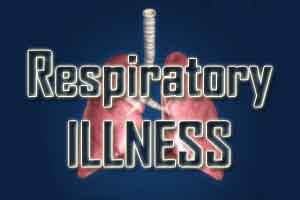- Home
- Editorial
- News
- Practice Guidelines
- Anesthesiology Guidelines
- Cancer Guidelines
- Cardiac Sciences Guidelines
- Critical Care Guidelines
- Dentistry Guidelines
- Dermatology Guidelines
- Diabetes and Endo Guidelines
- Diagnostics Guidelines
- ENT Guidelines
- Featured Practice Guidelines
- Gastroenterology Guidelines
- Geriatrics Guidelines
- Medicine Guidelines
- Nephrology Guidelines
- Neurosciences Guidelines
- Obs and Gynae Guidelines
- Ophthalmology Guidelines
- Orthopaedics Guidelines
- Paediatrics Guidelines
- Psychiatry Guidelines
- Pulmonology Guidelines
- Radiology Guidelines
- Surgery Guidelines
- Urology Guidelines
People born premature have smaller airways causing respiratory problems

People born prematurely may have smaller airways than those born at full term, which can cause respiratory problems. That's according to research published in Experimental Physiology.
It is known that cardiovascular and respiratory system function is affected by premature birth, but the exact causes are still not completely known. Recent research suggests that the impaired lung (respiratory) function in those born prematurely could be due to smaller airways.
The study looked at adults who were born prematurely (eight or more weeks early) and adults who were born at full term and the same age and height as those individuals in the premature group. The researchers measured the lung function of all participants at rest and during exercise. Using information from the resting lung function tests, they calculated an estimate of airway size for both premature and full-term groups. The researchers found that the estimate of airway size was smaller in the premature group compared to the full-term group.
This discovery may provide a basis to help doctors tailor treatment of respiratory ailments in those born prematurely. Current treatment of respiratory ailments in adults born premature is similar to asthma treatments, which work to open up closed airways. This treatment may not have the same effect in individuals born premature because they might have small rather than closed up airways.
JJ Duke, an author of the study, said, 'our study might suggest that respiratory treatments would be less effective in individuals born prematurely, but more work needs to be done to directly test this.'
'Our work used only an estimate of airway size and future research should use precise measurements to try and obtain an actual airway size, rather than an estimate,' he continued.
The work was carried out by researchers at Northern Arizona University, Oregon Health and Sciences the University and University of Oregon, USA, and the University of British Columbia, Canada.
For more details click on the link: http://dx.doi.org/10.1113/EP086588

Disclaimer: This site is primarily intended for healthcare professionals. Any content/information on this website does not replace the advice of medical and/or health professionals and should not be construed as medical/diagnostic advice/endorsement or prescription. Use of this site is subject to our terms of use, privacy policy, advertisement policy. © 2020 Minerva Medical Treatment Pvt Ltd